Inspiration
A Guide to Grilling Vegetables
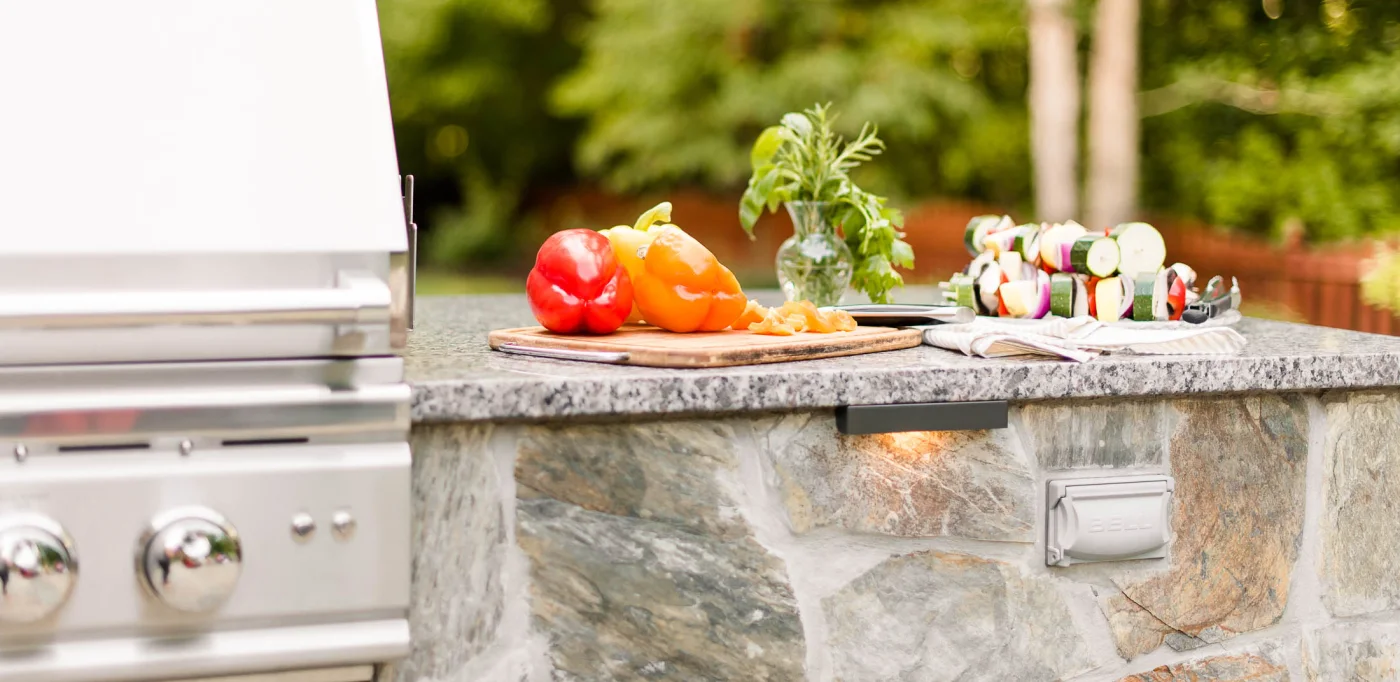
When we think of grilling, our minds (and stomachs) immediately gravitate towards burgers, hotdogs, steaks, ribs, and other delicious cuts of meat. Though it's completely understandable, if you're only grilling meat, you are missing out on the culinary treat that is grilled vegetables.
The biggest deterrent to grilling vegetables is often a past failed experience. Improper preparation and grilling methods result in unappetizing vegetables that are unevenly cooked, mushy, and charred. Using the right tools and techniques, grilling vegetables can be simple and produce delicious results.
Getting Started: Proper Preparation
The more surface area you give your vegetables for grill marks, the more flavor you’re going to get. Proper size and shape also makes them easier to move around the grill.
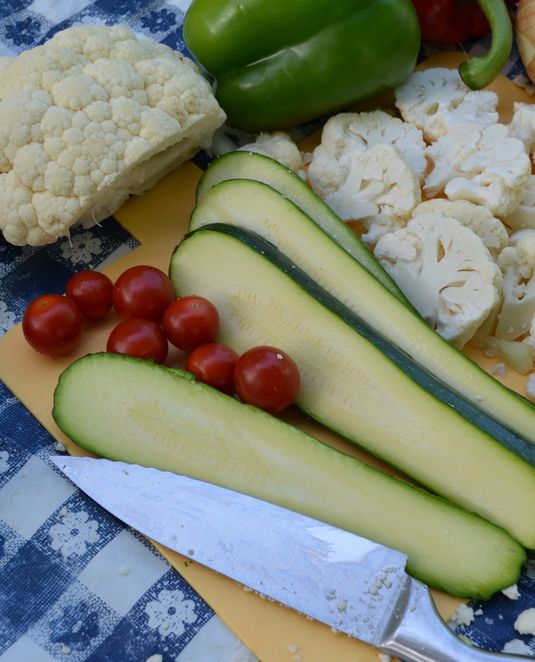
-
Bell Peppers: Seed and quarter
-
Asparagus: Trim the woody ends
-
Onions: Peel and quarter through the root (for skewers) or slice into rounds
-
Yellow Squash, Zucchini, and Eggplant: Cut lengthwise into meaty, steak-like strips or rounds
-
Mushrooms: Remove stems and halve, if large
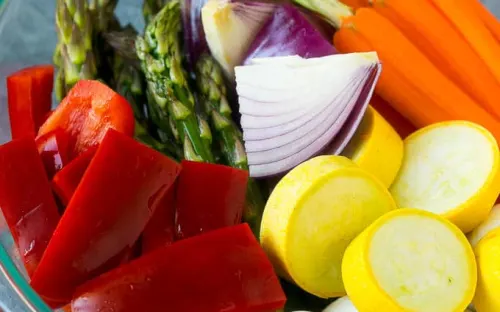
Smaller Pieces = Quick Cooking
How you cut your vegetables dictates how quickly they will cook. Cutting them into smaller pieces will limit the cook time and reduce the potential for excessive charring.
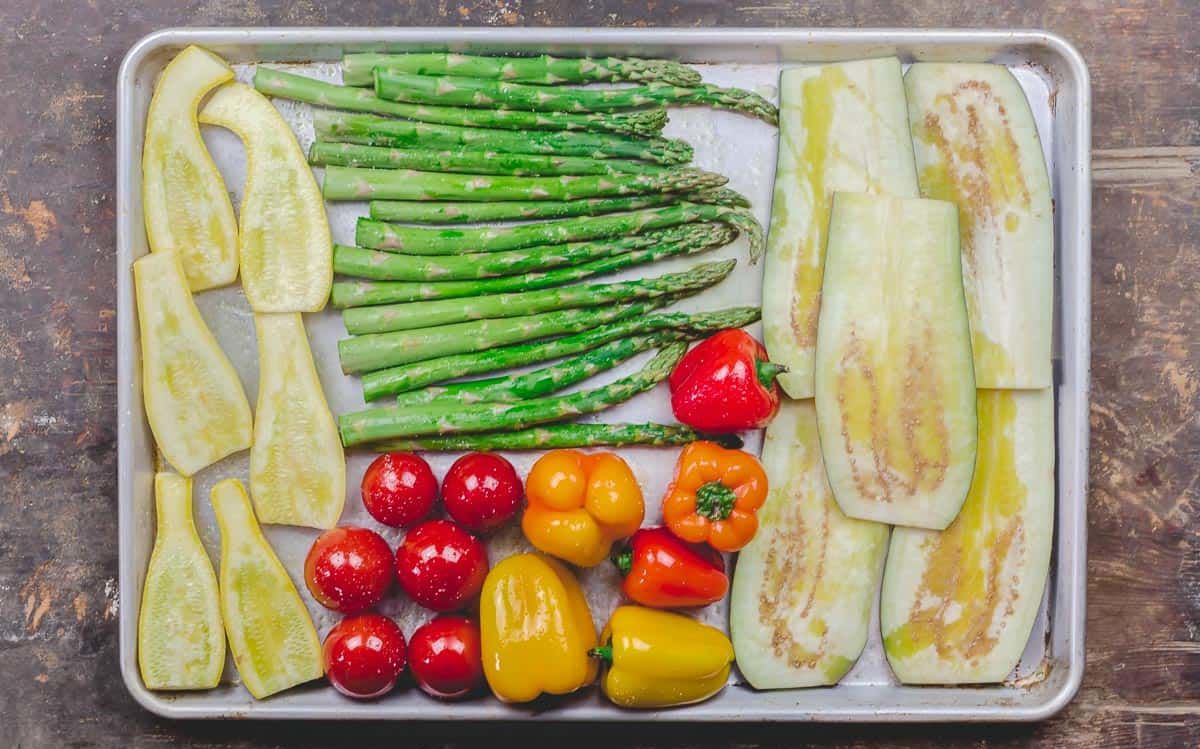
Lightly Oil & Season
Vegetables dry out when they hit the heat without a little oil. Before putting the veggies on the grill, toss them with a light coating of oil. Avoid using too much because dripping oil causes flare-ups and greasy flavors.
Oil also helps seasonings, like salt and pepper, stay on better. You can also use a marinade or salad dressing for extra flavor and moisture.
Tools & Techniques
When it comes to grilling vegetables, there are various tools and techniques that make the process easier and the results tastier.
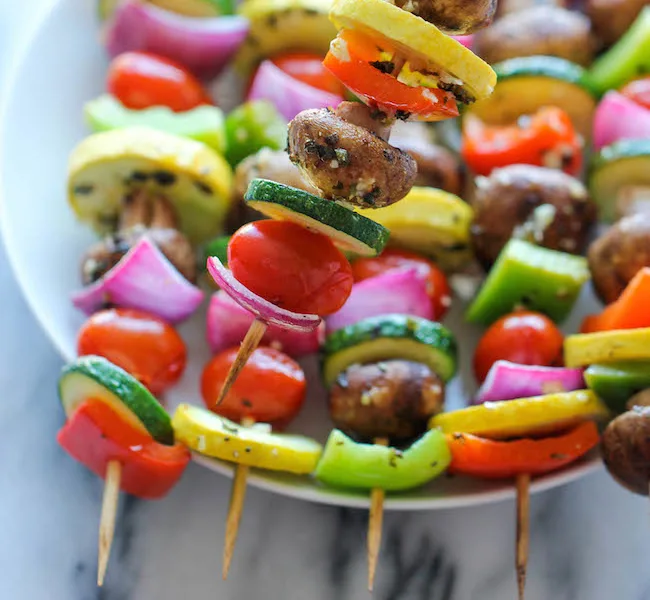
Keeping vegetables under control
Skewers & Baskets
Cherry tomatoes, zucchini rounds, and mushrooms are great on the grill, but they're a little unwieldy. To keep smaller vegetables from rolling around or falling through the grate, pierce them on a skewer or use a grill basket.
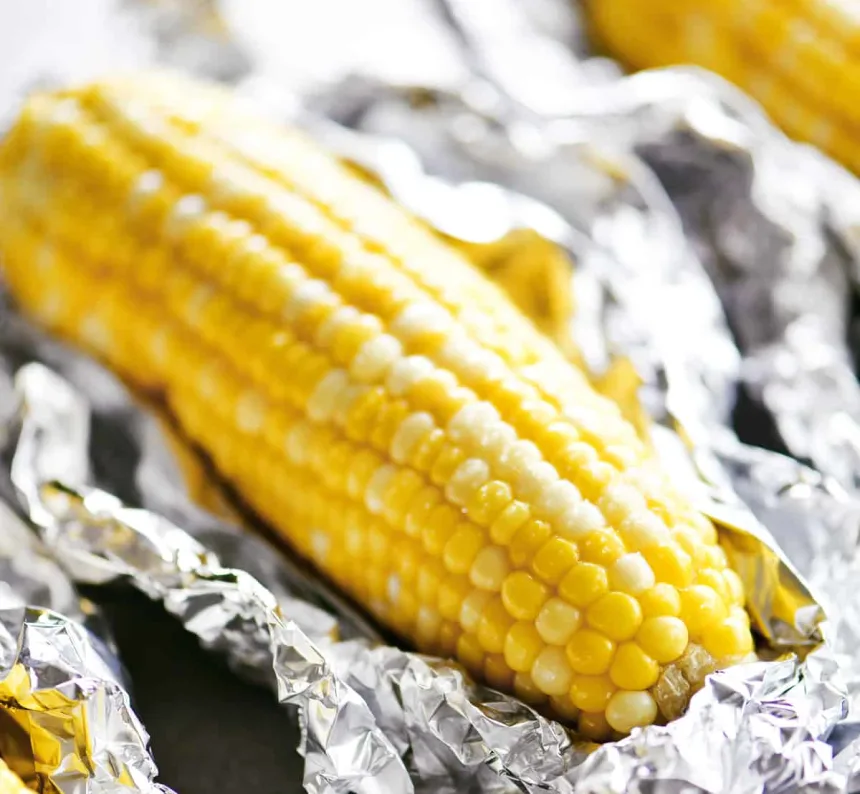
No Skewers or Basket?
Cook in Foil Packets
If you don't have a grill basket, consider making a packet out of aluminum foil. Using foil also protects vegetables from excessive charring, making it a great choice for denser favorites like corn, potatoes, and other root vegetables that take longer to cook. Foil packets are great for anyone that isn't able to "babysit" their vegetables while on the grill.
CAUTION: Be careful of steam when you open the packet.
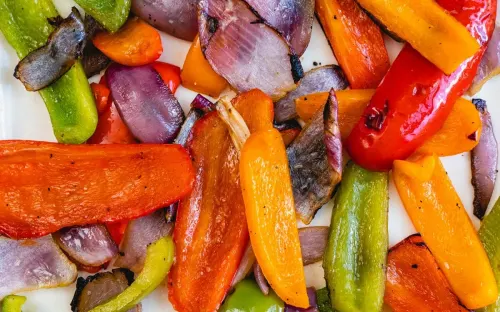
Pair with Like Vegetables
Making kebabs? For evenly cooked skewers, pair softer vegetables together, such as tomatoes and mushrooms, and harder vegetables together, such as onions and bell peppers.
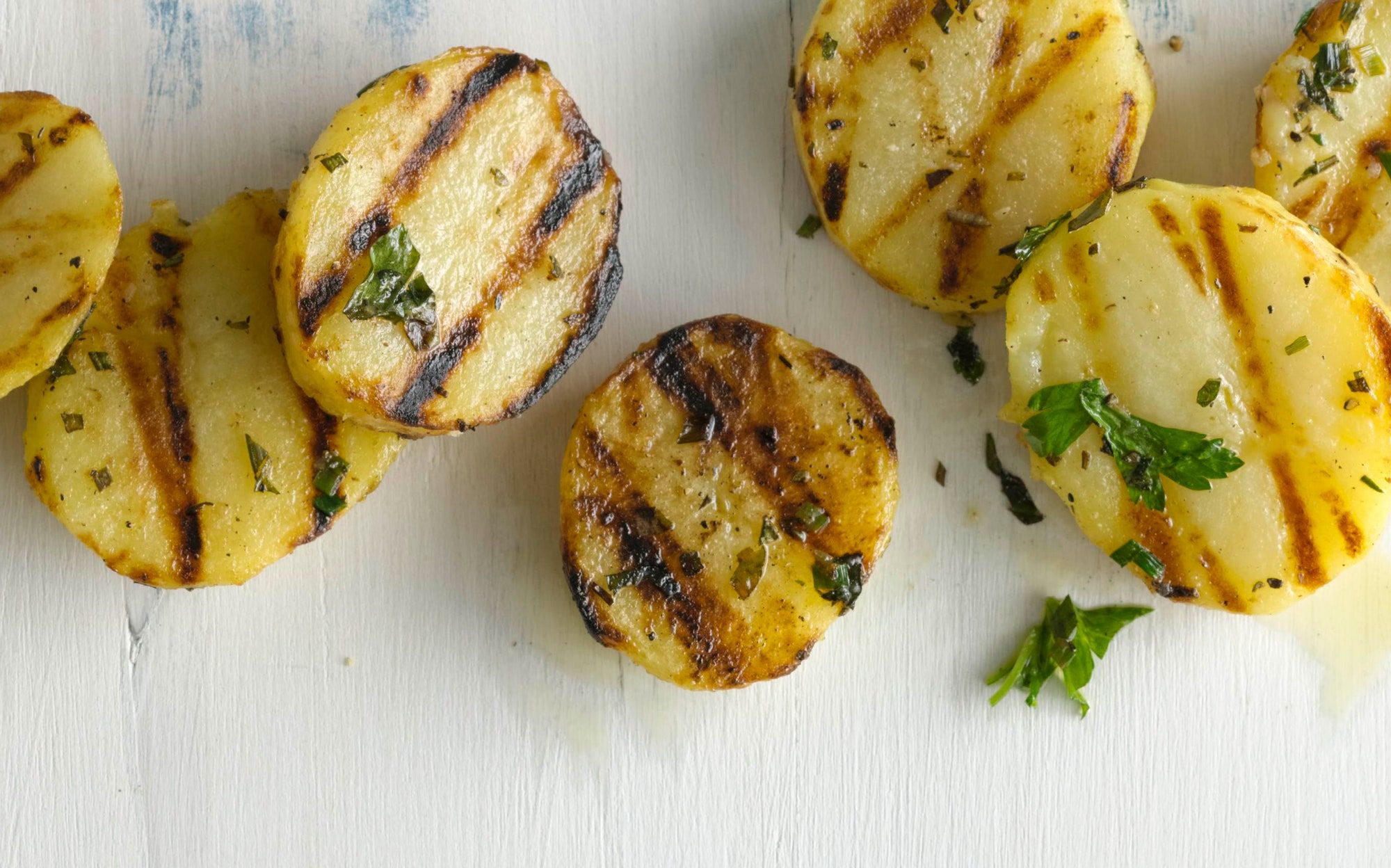
Consider Precooking
Certain vegetables do better if they are briefly cooked before being placed on the grill. For example, precook firm veggies, like thick asparagus and carrots, for about three to five minutes in a saucepan of simmering water. Potatoes can also be cut into slices or wedges and parboiled for about 10 minutes until just tender.
Suggested Cook Times
Cook time typically depends on the size, shape, and density of each vegetable. To achieve good grill marks try to cook for 3 to 4 minutes on the first side without disturbing.
-
Corn: 15 to 20 minutes, turning every 5 minutes
-
Potatoes: Boil for 10 minutes and Grill for 5-10 Minutes
-
Bell peppers and Onions: 8 to 10 minutes
-
Yellow Squash, Zucchini, Eggplant, and Mushrooms: 7 to 8 minutes
-
Asparagus, Green Onions, and Tomatoes: 4 to 6 minutes
The numbers above are a "universal" guide for cooking vegetables over medium heat. That said, understand that every grill is different and it is important to watch closely during your first attempts. Be sure to learn and adapt as you go.
Most grills have "hot spots" that get warmer than others. When grilling vegetables, this can be used to your advantage. For example, you can place heartier vegetables that can handle high heat — like peppers and onions — near the back of the grill, where it’s often the hottest.
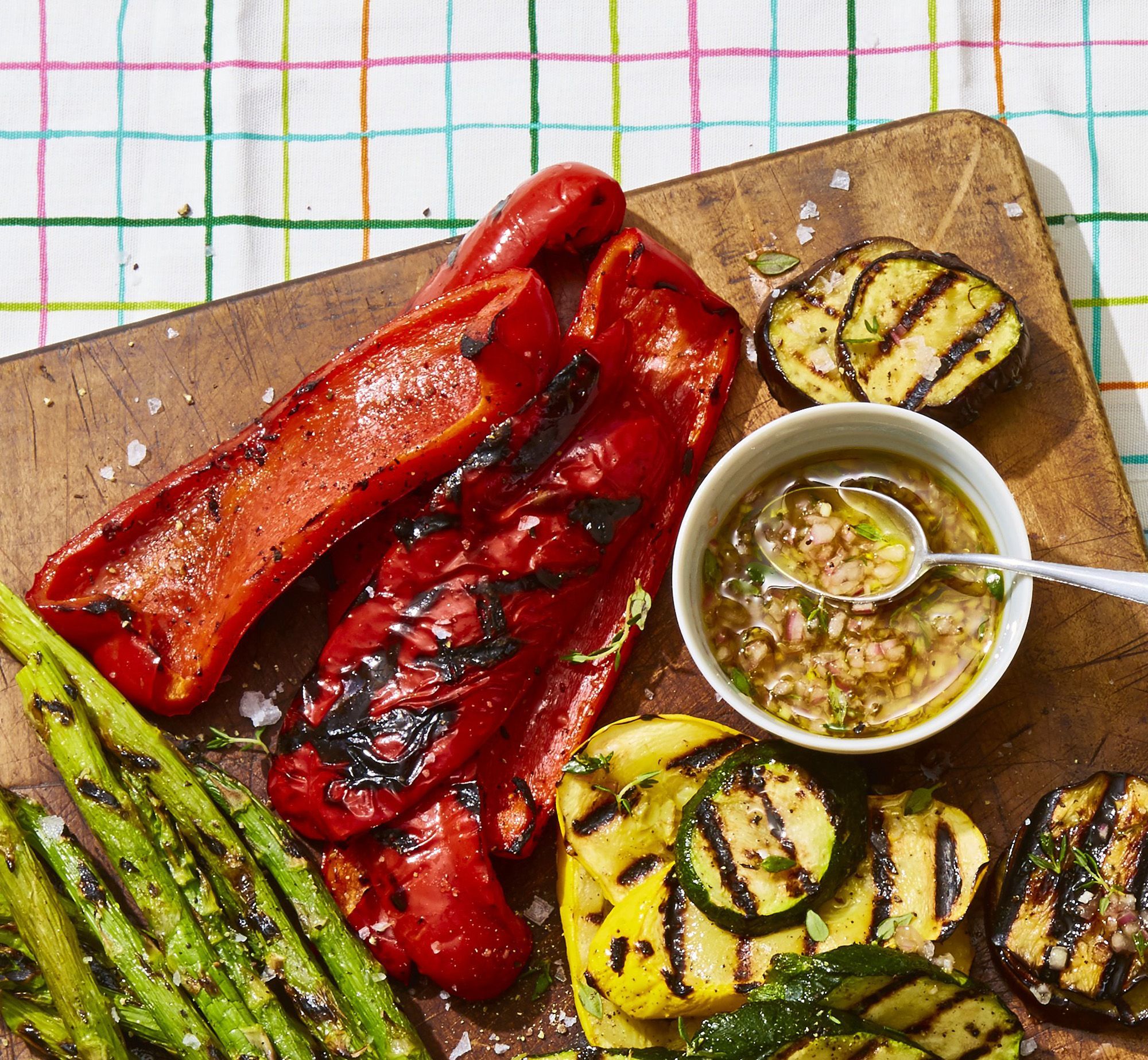
Adding additional flavor
Marinades vs. Dressing
Though grilled vegetables taste great with only a little salt and pepper, many people like to add more flavor with marinades and dressings.
If you choose to marinade for a deeper flavor, make sure to protect your vegetables from direct flames using foil or a grilling pad. Excess oils and sugars from marinades can cause flame flare-ups that result in excessive charring.
To avoid this problem, skip the marinade and toss your grilled vegetables in a vinegarette dressing when serving.
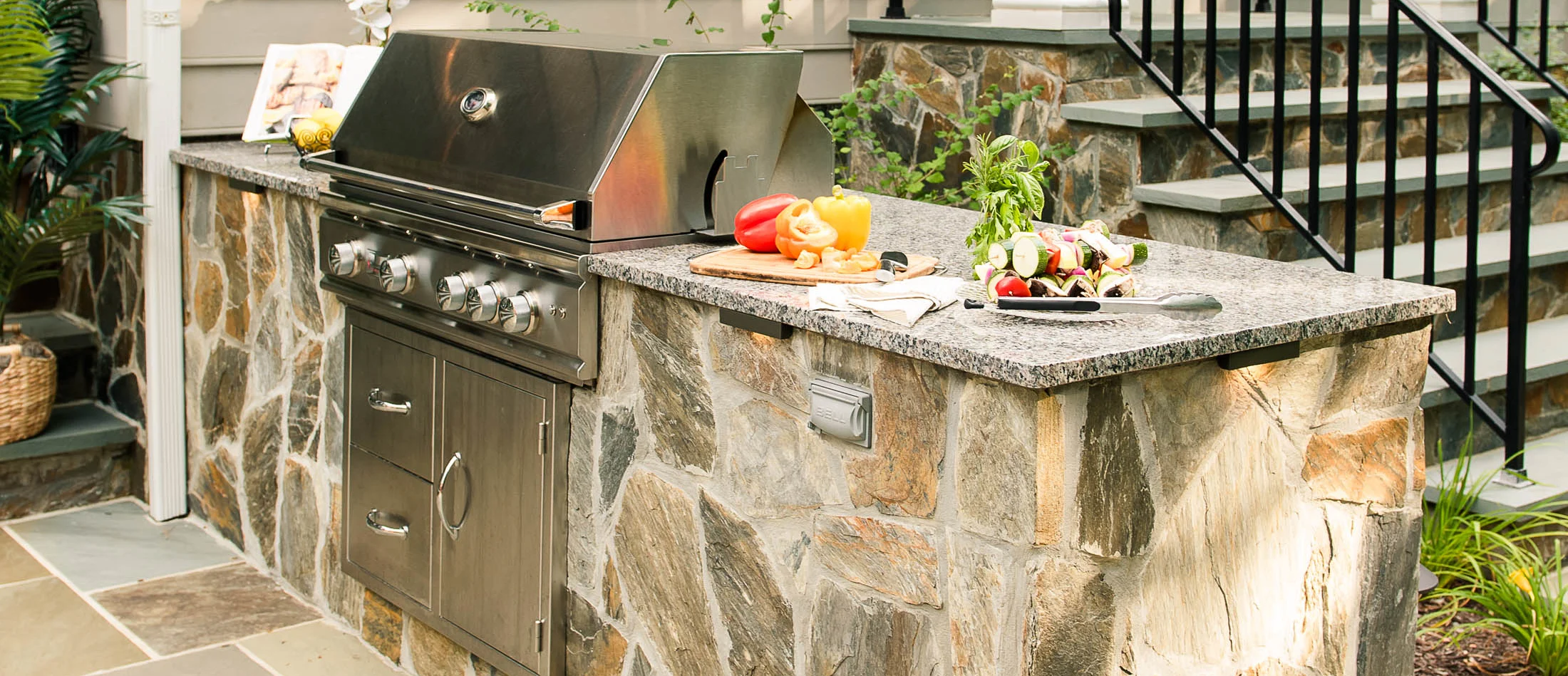
The Ultimate Outdoor Kitchen Planning Guide
The Ultimate Outdoor Kitchen Planning Guide
If you're adding an outdoor kitchen to your outdoor living space, it's important to properly plan and design your structure. In this article, we discuss and provide guidance for budgeting, location, design, materials, and appliances.